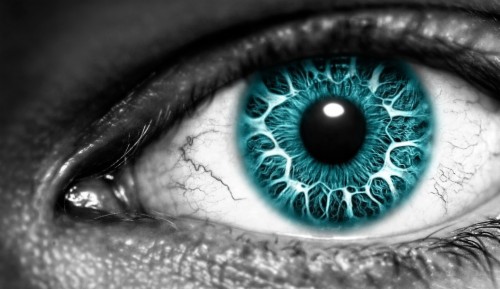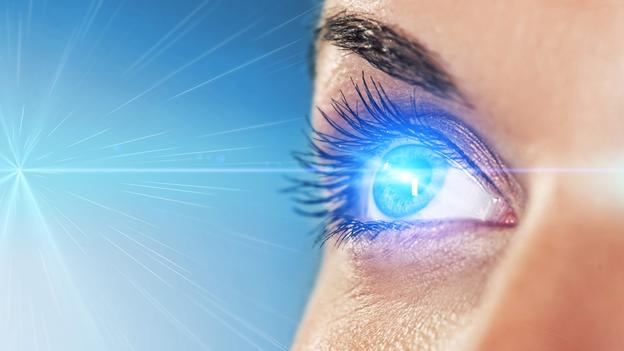Overview
Keratitis is an inflammation of the cornea — the clear, dome-shaped tissue on the front of your eye that covers the pupil and iris. Keratitis may or may not be associated with an infection. Noninfectious keratitis can be caused by a relatively minor injury, by wearing your contact lenses too long or by a foreign body in the eye. Infectious keratitis can be caused by bacteria, viruses, fungi and parasites.
If you have eye redness or other symptoms of keratitis, make an appointment to see your doctor. With prompt attention, mild to moderate cases of keratitis can usually be effectively treated without loss of vision. If left untreated, or if an infection is severe, keratitis can lead to serious complications that may permanently damage your vision.
Symptoms
Signs and symptoms of keratitis include:
- Eye redness
- Eye pain
- Excess tears or other discharge from your eye
- Difficulty opening your eyelid because of pain or irritation
- Blurred vision
- Decreased vision
- Sensitivity to light (photophobia)
- A feeling that something is in your eye
When to see a doctor
If you notice any of the signs or symptoms of keratitis, make an appointment to see your doctor right away. Delays in diagnosis and treatment of keratitis can lead to serious complications, including blindness.
Causes
Causes of keratitis include:
- Injury. If any object scratches or injures the surface of your cornea, noninfectious keratitis may result. In addition, an injury may allow microorganisms to gain access to the damaged cornea, causing infectious keratitis.
- Contaminated contact lenses. Bacteria, fungi or parasites — particularly the microscopic parasite acanthamoeba — may inhabit the surface of a contact lens or contact lens carrying case. The cornea may become contaminated when the lens is in your eye, resulting in infectious keratitis. Over-wearing your contact lenses can cause keratitis, which can become infectious.
- Viruses. The herpes viruses (herpes simplex and herpes zoster) may cause keratitis.
- Bacteria. The bacterium that causes gonorrhea can cause keratitis.
- Contaminated water. Bacteria, fungi and parasites in water — particularly in oceans, rivers, lakes and hot tubs — can enter your eyes when you’re swimming and result in keratitis. However, even if you’re exposed to these bacteria, fungi or parasites, a healthy cornea is unlikely to become infected unless there has been some previous breakdown of the corneal surface — for example, wearing a contact lens too long.
Risk factors
Factors that may increase your risk of keratitis include:
- Contact lenses. Wearing contact lenses — especially sleeping in the lenses —increases your risk of both infectious and noninfectious keratitis. The risk typically stems from wearing them longer than recommended, improper disinfection or wearing contact lenses while swimming.Keratitis is more common in people who use extended-wear contacts, or wear contacts continuously, than in those who use daily wear contacts and take them out at night.
- Reduced immunity. If your immune system is compromised due to disease or medications, you’re at higher risk of developing keratitis.
- Corticosteroids. Use of corticosteroid eyedrops to treat an eye disorder can increase your risk of developing infectious keratitis or worsen existing keratitis.
- Eye injury. If one of your corneas has been damaged from an injury in the past, you may be more vulnerable to developing keratitis.
Complications
Potential complications of keratitis include:
- Chronic corneal inflammation and scarring
- Chronic or recurrent viral infections of your cornea
- Open sores on your cornea (corneal ulcers)
- Temporary or permanent reduction in your vision
- Blindness
Prevention
Caring for your contact lenses
If you wear contact lenses, proper use, cleaning and disinfecting can help prevent keratitis. Follow these tips:
- Choose daily wear contacts, and take them out before going to sleep.
- Wash, rinse and dry your hands thoroughly before handling your contacts.
- Follow your eye care professional’s recommendations for taking care of your lenses.
- Use only sterile products that are made specifically for contact lens care, and use lens care products made for the type of lenses you wear.
- Gently rub the lenses during cleaning to enhance the cleaning performance of the contact lens solutions. Avoid rough handling that might cause your lenses to become scratched.
- Replace your contact lenses as recommended.
- Replace your contact lens case every three to six months.
- Discard the solution in the contact lens case each time you disinfect your lenses. Don’t “top off” the old solution that’s already in the case.
- Don’t wear contact lenses when you go swimming.
Preventing viral outbreaks
Some forms of viral keratitis can’t be completely eliminated. But the following steps may control viral keratitis occurrences:
- If you have a cold sore or a herpes blister, avoid touching your eyes, your eyelids and the skin around your eyes unless you’ve thoroughly washed your hands.
- Only use eyedrops that have been prescribed by an eye doctor.
- Washing your hands frequently prevents viral outbreaks.















